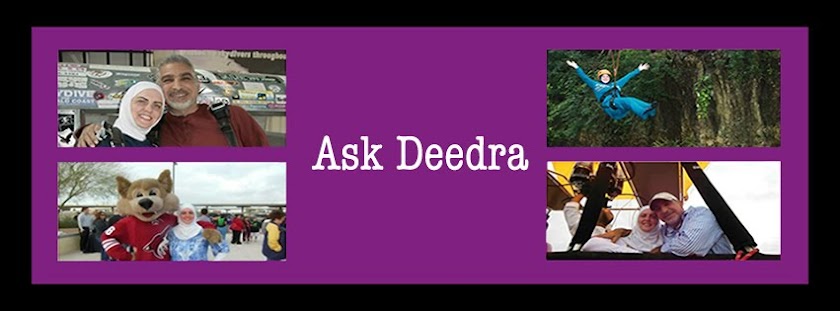Most people are familiar with the four agreements within the book The Four Agreements, even if they have never read the book. I heard about the book and concept for years before I actually read the book. Once I read the book, I realized I had been mistaken in thinking I understood the four agreements. I clearly didn't.
There is also a fifth agreement, described in the book The Fifth Agreement. Though the fifth agreement itself has a lot of pieces, two powerful pieces are the power of doubt and learning to listen. The idea that we should question everything, be skeptical of everything, realize almost everything is an opinion.
Then learn to listen and wonder about the 'truth' of everything before accepting it as your 'truth.'
Beliefs and 'Truth,'' in the context of both books, is not just about belief in a higher power, but more about what we believe about ourselves, others, and how the world works.
I thought about the fifth agreement when I reflected on my sixth and seventh-grade years.
The sixth and seventh grades continued to be confusing for me but for different reasons than before. I continued to question everything but I think most other people of my age were as well - and teachers seemed much more tolerant, expectant even, that questions were the norm.
I had also begun to embrace my belief that adults were not all knowing - meaning it no longer felt like a betrayal or that I lost my footing.
Every interaction, every topic, was an opportunity to learn more about the world, how it worked, and what I wanted from it.
I have clumped the sixth and seventh grades together because they seem to be combined in my memory.
For example, I had Mrs. Wilson and Mr. Hearn for science. Mr. Mitchell, who after every explanation would say, "Alright, good," for math. But for which of the two years, I am unsure. I know I was in Mr. Hearn's class during the space shuttle "Challenger" explosion because he was one of the teachers that made the original list of teacher candidates.
Mrs. Carroll was definitely sixth grade and Mrs. Nazareth definitely seventh grade, both for Social Studies.
Mrs. Carroll's son, Todd, was my 'boyfriend.' I saw a lot of Mrs. Carroll as a result. In sixth-grade Social Studies, we learned about different cultures in the world. The only one I remember was the culture of the Middle East.
The book taught us women were the property of men in the Middle East, women had to wear lots of clothes to cover themselves, women could only wear black, and women had to 'walk two steps behind men with their head down.'
The book taught us women were the property of men in the Middle East, women had to wear lots of clothes to cover themselves, women could only wear black, and women had to 'walk two steps behind men with their head down.'
Needless to say, I decided right then I did not like people from the Middle East.
In seventh grade, my sister had begun dating a boy that was the son of a preacher at an Assembly of God church. I often attended church with them.
Mrs. Nazareth was both my Sunday school teacher and my seventh-grade social studies teacher - by sheer coincidence because I went to public school.
In seventh-grade Social Studies, we learned about the different religions in the world. Our book called Islam "Mohamedism" and said Muslims worshiped a man named Mohamed. I remember after finishing each religion, including Catholicism but not Protestantism, Mrs. Nazareth would say, "But all those people are going to hell because they are following a false religion."
I remember clearly thinking, "How do you know? What if they are right and we are wrong? Don't they think the same about us?"
 One thing I had plenty of by that time was skepticism.
One thing I had plenty of by that time was skepticism.Not that I did not believe in anything. I believed in a lot of things. I just questioned everything before I believed it - I even continued to question things after I believed it. Ever evolving.
I needed to see the logic. Even things that I disagreed with could still make sense to me.
I needed to know how the information 'felt.' If it 'felt' odd, I would research and think about it more. One concept could roll around in my mind for years before I made a decision - or change my opinion.
I was not yet prepared to publicly defend my ideas - I had already learned how scary that could be - but by this time I was at peace with privately disagreeing with the world around me.
I had been taught, and rejected, the idea that questioning things was the devil trying to lead me astray. For some unknown reason, I had decided God gave me a brain for a reason. If HE didn't want me to use it, HE would not have given it to me.
I also had the belief that all answers were available for those who searched for them. I firmly believed God gave us a brain that could comprehend the answers, but that HE had given us the challenge to search and think.
To the depth of my soul, I believed it was my duty to question, learn, and analyze - that these actions were the right path.
I still believe and practice that today.
And it all started with an innate skepticism, a passion for observing, a tendency toward analyzing, and listening to more than just the words used.
And it all started with an innate skepticism, a passion for observing, a tendency toward analyzing, and listening to more than just the words used.


nice
ReplyDelete